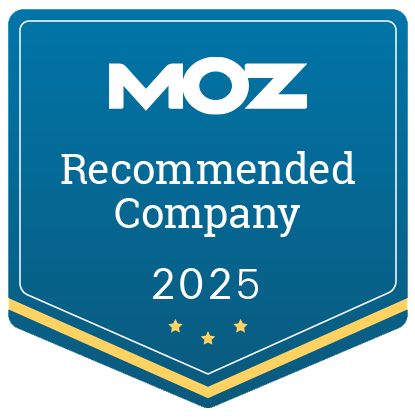As the name implies, off-site search engine optimization (SEO) is the process of improving your website's ranking in search engines by executing different tactics outside of your website. This type of SEO is also often referred to as "link building" because it involves building links from other high-quality, relevant websites with the intent of driving traffic back to your page. Any good SEO strategy must include some type of off-site technique. This beginner’s guide to SEO will explain what off-site SEO is and how it works for any company looking to grow its business.
What is the Difference Between On-Site and Off-Site SEO?
On-site SEO (or on-page SEO) is the variety of methods and techniques you should use to ensure your website is optimized and equipped with all the right technical features that would enable it to rank higher in search engines. On-site SEO includes internal links, keywords, meta tags, data organization system, page loading speed, and other relevant factors.
The technique of improving your website's ranking in search engines by focusing on external elements such as links, social media engagement, and backlinks is known as off-site SEO (or off-page SEO). The benefits of off-site SEO are significant. It provides many new opportunities for building brand awareness and encouraging new users to interact with your site. It also allows companies with limited resources to compete against larger businesses with more money to spend on campaigns (like content marketing or paid ads). By providing opportunities for traffic to reach your website from content you intentionally placed on other sites, off-page SEO strategies make it possible for companies to focus on creating high-quality, valuable content that is helpful and educational. This helps build trust with search engines and users, which leads to increased engagement for your content and brand.
What are the Benefits of Off-Site SEO?
There are four main ways off-site SEO can help your business:
- Improves brand awareness and exposure: Allowing users to find your content and interact with it on other sites increases brand exposure. This means you can create a presence for your business in front of prospects and customers even if they aren't visiting your website. This helps you acquire new leads and nurture them through the sales funnel while growing your brand.
- Encourages higher engagement: The more users interact with you and your content, the stronger their connection to it becomes. This makes it more likely that they will choose your business over other companies in their search for products or services.
- Increases web traffic: As users engage with your content on other sites, they are more likely to visit your website. This means you can increase web traffic by focusing on the importance of tactical SEO strategies, both on-page and off-page — focusing less on paid ads, which can be expensive.
- Increases conversions: The more users trust you, the more likely they are to choose you over companies that may be cheaper or easier to work with. Strong engagement and web traffic can lead your website visitors to take action, whether it's making a purchase or signing up for your email list. This is one of the most important goals of any business, further demonstrating why an off-site SEO plan is crucial.
How to Incorporate Off-Site SEO into your Marketing Plans:
Off-page SEO is a long-term strategy that requires consistency and commitment. Here are some things to keep in mind as you work on improving your website's ranking:
- Commit to creating high-quality, evergreen content that is helpful and educational. This will help your website earn natural links as well as social shares.
- Build relationships with other relevant companies, influencers, and bloggers in your industry to encourage them to share your content on their own site.
- Engage with your audience by encouraging them to comment on or share your content and interact with you across other social media platforms.
- Make sure to use relevant keywords and phrases in your content, as well as links back to pages on your website that are most important.
- Make yourself available for interviews, podcasts, and other opportunities to get your company's name out there.
Various platforms that can be used to promote off-site SEO include:
- Blogs and websites relevant to your industry
- Social media channels such as Facebook, Twitter, LinkedIn, and Instagram
- Online forums and discussion boards
- Local business directories (Yelp, Yellow Pages, etc.) that allow users to post reviews or recommendations for other users
- Directories of high-quality content on the web
By developing a strong off-site SEO plan, you can help your website rank higher in search results and bring more traffic to it. This will increase conversions and help grow your business over time.
For more information on incorporating off-site SEO into your business's marketing plan, contact Zero Gravity Marketing. We are a fully-staffed digital marketing agency dedicated to helping businesses like yours grow and thrive. Let’s start planning your robust on-page and off-page SEO strategy today!









